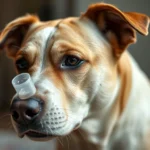
Maintaining a dog’s hygiene is crucial for their overall health and well-being. As pet owners, we often take pride in ensuring our furry friends are clean and smelling fresh. However, it can be perplexing and concerning when your dog smells bad even after a bath. Understanding the reasons behind this can help you take the necessary steps to resolve the issue and keep your pet comfortable and happy.
Understanding Dog Odor
What Causes Dog Odor?
The first step in addressing your dog’s smell is to understand what causes it. Dogs naturally produce body oils and have skin bacteria that can contribute to their odor. These natural elements help protect their skin but can also create a noticeable scent, especially if they are not regularly bathed or groomed.
Diet and health-related factors play a significant role as well. Dogs that have poor diets or specific health conditions may have a stronger odor. Environmental influences, such as rolling in mud or swimming in stagnant water, can also contribute to bad smells.
The Role of Bathing
Regular bathing is essential for controlling dog odor. However, misconceptions about how often to bathe a dog can lead to ineffective odor management. Some owners believe that frequent baths can strip away natural oils and cause skin issues, while others may not bathe their dogs often enough. Understanding the right balance is key to maintaining a dog’s hygiene without compromising its skin health.
Reasons for Persistent Smell After Bathing
Incomplete Cleaning
One common reason dogs might smell bad after a bath is incomplete cleaning. Certain areas, such as the paws, underbelly, and tail, can be overlooked during the washing process. Additionally, if soap is not thoroughly rinsed out, it can lead to irritation and an unpleasant smell.
Thorough cleansing requires attention to detail; using a gentle, dog-specific shampoo and ensuring every part of your dog is washed can help in achieving a fresher scent.
Skin Conditions
Another potential reason for a persistent odor is a skin condition. Conditions such as yeast infections, allergies, or dermatitis can cause a significant smell that regular bathing won’t eliminate. Symptoms to look for include excessive scratching, redness, or unusual discharge. If you notice these signs, it’s essential to consult with a veterinarian, as untreated skin issues can lead to further complications.
Ear and Dental Hygiene
Don’t overlook the connection between ear infections and bad smells. Dogs prone to ear infections can have a distinct odor emanating from their ears. Regular cleaning of the ears, using vet-approved solutions, can help mitigate this issue.
Furthermore, dental hygiene plays an important role in overall odor management. Bad breath can contribute to a foul smell, so regular teeth brushing and dental check-ups are recommended to keep your dog’s mouth healthy.
Poor Quality Shampoo
Using the wrong type of shampoo can also lead to issues. Human shampoos are not formulated for dogs and can irritate their skin, causing dryness and odor. Dog-specific shampoos are designed to maintain a healthy pH balance for their skin. When selecting a shampoo, avoid those with harsh chemicals, fragrances, or artificial additives, which can exacerbate any existing skin problems.
Seasonal and Environmental Factors
Seasonal Changes
Weather can significantly influence a dog’s smell. During wet or humid conditions, dogs may develop a musty odor due to increased bacteria growth on their skin. Seasonal allergies can also exacerbate odors, as they can lead to increased scratching and skin irritation.
During the warmer months, pets are more likely to encounter mud, water, and other smelly substances. Regular grooming during these times can help keep your dog smelling fresh.
Environmental Exposure
Environmental exposure is another factor to consider. Dogs that swim in lakes, rivers, or oceans often come out smelling of algae, fish, or other unpleasant odors. Additionally, if your dog gets into garbage or rolls in something smelly, it can lead to a rather pungent odor that a simple bath may not resolve.
Health Concerns to Consider
Underlying Health Issues
Persistent odors can sometimes indicate underlying health issues. Conditions like diabetes, kidney disease, or hormonal imbalances can produce distinct smells that are not easily masked. If your dog has a sudden change in odor, it’s crucial to consult your veterinarian to rule out any serious health problems.
Importance of Regular Vet Check-ups
Regular veterinary visits are essential for identifying underlying health issues that could contribute to unpleasant odors. Your vet can offer advice on managing your dog’s hygiene and recommend routine checks for skin health, dental hygiene, and overall well-being.
Tips for Managing Dog Odor
Proper Bathing Techniques
To keep your dog smelling fresh, it’s essential to practice proper bathing techniques. The recommended bathing frequency can vary depending on the breed, activity level, and skin type. Generally, most dogs benefit from a bath every 4-6 weeks, while dogs with specific skin conditions may require more frequent bathing.
Here’s a step-by-step guide for effective dog bathing:
- Gather Supplies: You’ll need dog shampoo, towels, a brush, and a non-slip mat.
- Brush Your Dog: Remove any loose fur and tangles before the bath.
- Wet Your Dog: Use lukewarm water to wet your dog thoroughly, avoiding the eyes and ears.
- Lather Up: Apply dog shampoo and massage it into the coat, paying attention to areas prone to odor.
- Rinse Thoroughly: Ensure all soap is rinsed out to avoid residue buildup.
- Dry Off: Use towels to dry your dog, and consider using a pet-safe blow dryer for long-haired breeds.
Maintaining Overall Hygiene
Regular grooming is essential for managing dog odor. This includes brushing your dog’s coat, trimming nails, and cleaning their ears. Additionally, keeping your dog’s living environment clean—such as washing bedding and toys regularly—can help minimize odors.
Home Remedies for Odor Control
If you’re looking for natural options to help manage dog odor, there are several home remedies you can try. For example, adding a small amount of apple cider vinegar to your dog’s bath can help neutralize odors. Baking soda is another excellent option; sprinkling it on your dog’s bedding can absorb smells.
However, always consult your veterinarian before trying any DIY solutions, as some ingredients may not be safe for all dogs.
Conclusion
Understanding why your dog might smell bad after a bath is the first step towards effective odor management. From ensuring thorough cleaning and addressing skin conditions to maintaining regular vet check-ups, there are various ways to keep your dog smelling fresh and clean. Adopting better hygiene practices and being vigilant about your dog’s health can help mitigate unpleasant odors, ensuring your furry friend stays happy and healthy. Always remember that persistent odors may require professional guidance, so don’t hesitate to seek veterinary advice when needed.









